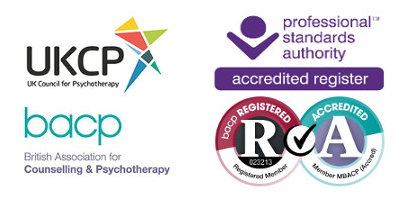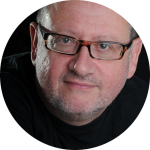Addiction Counselling & OCD Therapy in London
Therapy for addictive and obsessive-compulsive behaviour disorders with Marcus
Addictions and Obsessive Behaviour are more than just ‘bad habits’. They can really ruin your enjoyment of life and dominate your existence. When thoughts and desires turn into cravings that wholly consume your attention, you are moving towards addictive or obsessive behaviour. People commonly try to fix themselves using willpower alone, and if that fails it can simply increase a sense of frustration and hopelessness. Working with a counsellor skilled in Addiction Counselling & OCD Therapy can help.
“When you open your eyes, the first person you bump into is you.” David Schnarch, psychologist and psychotherapist
Examples of Addictions and Addictive Behaviour:
- Smartphone addiction (or other technology devices)
- Alcohol consumption, in excess
- Porn, in excess
- Prescription or recreational drugs
- Particular foods or food groups
- Over-stimulation, e.g. thrill-seeking activities, dangerous sports
Examples of Compulsive Behaviour:
- Overuse of social media
- Gambling, to excess
- Any type of bingeing
Examples of OCD Behaviour:
- Repetitive, overattentive cleaning and washing – of a flat, a car, a restaurant table or yourself
- Checking locks over and over
- Checking appliances are switched off, over and over
- Checking the ground for syringes, inappropriately and with high anxiety
- Straightening objects, pictures, rugs etc.
- Chewing hair, and other self-harm
Examples of Obsessive Behaviour:
- Ruminating or speculating about a person, ‘needing’ to know where they are and who they are with
- Continuous, anxiety-inducing thoughts about someone or something to the exclusion of all else
- Controlling, monitoring or stalking
- Phobias and the avoidance strategies that support them
- Overly rigid dependence on routines
What do Addiction, Obsession and OCD have in common?
These are really the same type of experience, because they involve behaviours you do without wanting to.
You are in some way choosing to do them, but it doesn’t feel that way at all. What you feel is obligated – carried along with a sense of immediate urgency – to behave in ways you know don’t serve you well. There’s no pausing and considering. You can’t help yourself.
Whether for you it’s:
- lighting a cigarette (Addiction or Compulsive Behaviour)
- constant handwashing (OCD)
- continuously thinking about someone in a way that’s inappropriate, disproportionate and damaging (Obsession)
your mind and body are trying to satisfy a craving for pleasure, peace, relief or safety.
But why is this compulsive behaviour a cause for concern?
The problem is the craving – the powerful, irrational, harmful desire to do something, to possess someone or to consume something that your brain has learned gives you pleasure, calm and relief.
A neurotransmitter or chemical messenger called dopamine affects the experience of desire and has the ability to ‘wire in’ new reward pathways in the brain. It also consolidates and reinforces those pathways once your brain has established that a particular activity or substance induces pleasure in you.
The more you feel dopamine-induced pleasure, the more you want to repeat the experience. A vicious cycle forms. Thanks to levels of ‘tolerance’ that rise each time, you have to do or consume the thing more and more to achieve the same degree of pleasure. Desire for the person, substance or activity becomes an overwhelming urge you are powerless to resist.
The ‘pleasure’ is usually pretty low-level, just enough to get the dopamine cycle going. Being aware that the pleasure is never very great only adds to the frustration of being stuck in the experience of obsession and compulsion. That itself adds to the self-reinforcing nature of addictions, obsessions and compulsions.
These challenges are becoming ever more common, even though a few of the triggers, such as nicotine, appear to be on the wane. Sugar addiction, online gambling addiction, the compulsive use of internet porn, an OCD relationship to social media or to gaming, ‘iPhone addiction’ and issues with prescription drugs or with ‘legal highs’, are all serious and growing problems.
“I feel that I gained a great deal of insight and personal stability during those 6 months last year, for which I am very grateful.” – T
How does OCD Therapy and Addiction Counselling work?
In order to lower anxiety levels and to reverse the wiring in the brain that keeps reinforcing the compulsions, obsessions or addictions, Marcus uses cognitive and behavioural therapy techniques as well as a broad range of tools from formative psychology, gestalt therapy, psychosynthesis and Pesso-Boyden Therapy.
His work incorporates an understanding, which can be particularly relevant with obsessive-compulsive behaviour and addiction, of early trauma and shame. He also draws on Twelve Steps ‘Anonymous Fellowships’ (like AA, NA, OA and SLAA) and the ways in which their methods and approaches strengthen and support your Will to heal.
Addiction Counselling & OCD Therapy in London with Marcus
If you want to kick habits and move on with your life in a more fruitful and satisfying way, contact Marcus to talk about Addictions Counselling and OCD Therapy for Compulsive Behaviour.



